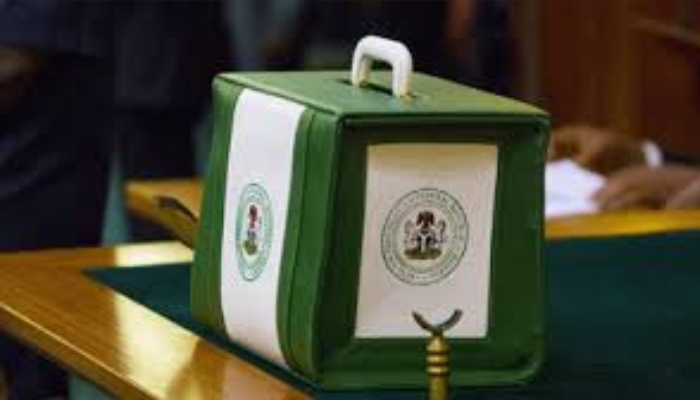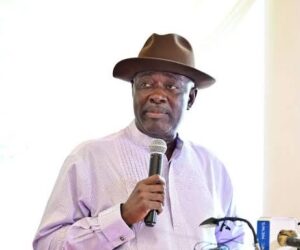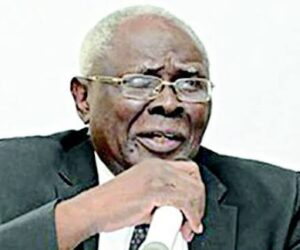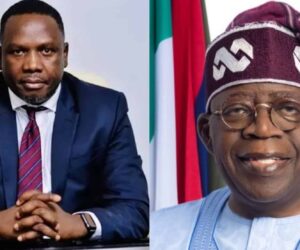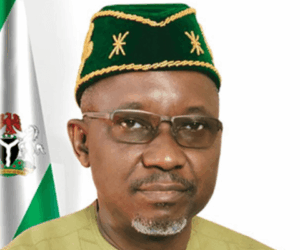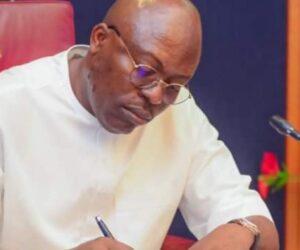…Performance of capital projects in MDAs still abysmally low
Slow execution of the 2025 budget is choking Nigeria’s already fragile economic recovery, delaying critical projects and the nation’s growth projections.
Insiders at some Ministries, Departments and Agencies (MDAs) told BusinessDay that the performance of capital projects for both 2024 and 2025 budgets is abysmal, revealing that several projects that could have lifted many Nigerians out of poverty are still left undone.
So far, Nigeria is heading into 2026 without a draft federal budget, Medium-Term Expenditure Framework (MTEF), or Fiscal Strategy Paper (FSP), creating a policy vacuum that economists and fiscal analysts warn is deepening uncertainty across Africa’s most populous nation.
Read also: Sanwo-olu unveils Lagos record N4.2tn budget pledges shared prosperity in 2026
The situation rattles investors and directly violates the Fiscal Responsibility Act (FRA 2007), analysts say.
The FRA says that, “the Minister shall, before the end of the second quarter of each financial year, present the Medium-Term Expenditure Framework to the Federal Executive Council for consideration and endorsement.”
It adds that, “The Medium–Term Expenditure Framework as endorsed by the Federal Executive Council shall take effect upon approval by a resolution of each of the National Assembly.”
The law further mandates that the MTEF must form the basis for preparing the annual budget to be presented to the parliament as stipulated in Section 81(1) of the Constitution.
Yet, BusinessDay findings show that as of November 2025 — the 11th month of the fiscal year and weeks to year-end — the federal government is still struggling to commence the execution of capital items in the N54.99 trillion ‘Budget of Transformation,’ which President Bola Ahmed Tinubu signed in February.
Simultaneously, the 2024 budget is still in effect, and a 2026 spending plan remains out of sight, with the government failing to publish the statutory MTEF by the second-quarter deadline.
The MTEF normally sets the three-year fiscal trajectory, guiding expected revenue, expenditure and borrowing levels, making its absence a critical obstacle to drafting and submitting the 2026 Appropriation Bill on time.
Nigeria’s real gross domestic product (GDP) grew by 4.23 percent in the second quarter (Q2) of 2025, its highest quarterly growth rate since 2021.
But this is still lower than Egypt and Kenya’s GDP growth of five percent and Ghana’s 6.3 percent growth over the period.
Analysts’ warnings
Ken Ife, development economist and consultant to the ECOWAS Commission, said the absence of key planning documents so close to the new fiscal year reflects “a breakdown in economic coordination at a moment Nigeria can least afford it.”
Speaking with BusinessDay, Ife said investors, especially contractors, are increasingly unsettled by the lack of clarity.
Read also: Nigeria’s missing budget and price of fiscal drift
He noted that much of the capital component of the 2024 budget “remains largely unspent,” even as 2025 is already unfolding.
“It’s not a good idea. Investors do not like this kind of uncertainty,” he said.
The delays, he warned, are halting infrastructure projects and pushing contractors toward bankruptcy as they grapple with bank interest rates as high as 35 percent.
Ife accused fiscal authorities of ‘irresponsible budgeting,’ pointing to this year’s adoption of a $75-per-barrel crude benchmark — far above international price projections — which he said inflated the budget and widened the deficit beyond the FRS’s legal three percent– four percent threshold.
He argued that the combination of inflated forecasts, heavy recurrent spending, and weak capital execution has “crowded out capital investment, depressed GDP growth and eroded private-sector resilience.”
The government’s failure to consistently publish quarterly budget performance reports, Ife added, has “kept the country in the dark,” complicating fiscal planning and undermining transparency.
With political alignment between the legislature and the executive deteriorating, he warned that Nigeria’s fiscal credibility is eroding rapidly. “If we can’t have a budget, we can’t plan,” he stressed.
Vahyala Kwaga, deputy country director at BudgIT Nigeria, echoed Ife’s concerns, warning that slow budget execution threatens to reverse recent economic progress. Kwaga is worried that the administration is no longer adhering to the 2021–2025 National Development Plan inherited from the previous government.
He noted ongoing moves by the Tinubu administration to develop a new 2026–2030 medium-term plan, but said, “It’s not very clear whether those conversations have even started.”
A medium-term expenditure framework, he said, “ought to have been published latest by September.”
He stressed that delays have cascading consequences. “If we are still implementing 2024 capital projects in 2025, it means that our targets for the 2021 to 2025 national plan cannot be met. It’s not clear that the Tinubu’s administration is even adhering to Buhari’s 2021 to 2025 national plan, because if it is, it has completely fallen out of the way of sequencing,” he said.
Kwaga also warned that capital expenditure for the 2025 fiscal year, which should begin in December, “will likely not even start.”
Without the MTEF, he said, a 2026 budget may not emerge at all. “
Read also: Governor Kefas presents ₦650.6bn 2026 budget to Taraba Assembly
Damilare Asimiyu, macroeconomic strategist and head of Investment Research at Afrinvest Consulting, said uncertainty around whether the 2026 budget will be presented before year-end is upending businesses across key sectors.
He explained that while the 2025–2027 MTEF provides faint guidance, its value is undermined by the absence of a formal 2026 budget cycle.
“Although the 2025-2027 MTEF has given a clue that the 2026 budget would be in the range of the current 2025 budget or slightly higher, the fact that the budget ministry has not given a clue of whether the budget would be presented to the Senate before the year end or not is a worrisome one,” he said. He added that the setback represents “a reversal of the progress made since 2022.”
Asimiyu flagged another risk, which is that the federal government is effectively running multiple capital budgets simultaneously.
According to him, running overlapping capital budgets “gives room for manipulation, double budgeting, and also misappropriation that will be difficult to trace in the future.”
He attributed the implementation challenges facing the 2025 budget to persistent revenue shortfalls, noting that while the government celebrated stronger non-oil revenue of N23 trillion for the first nine months of 2025 — above the N21 trillion pro-rata target — it has been “very silent on the oil revenue part,” which was expected to contribute about half of total government income.
“As captured in one of our recent weekly reports, we estimated that Nigeria’s pro-rata oil revenue between January and September may have underperformed by at least 19.5 percent due to lower average oil production and price of 1.51mbpd and $68.70/barrel, as against 2.06mbpd and $75.00/barrel captured in the budget,” he said.
Eze Onyekpere, lead director at the Centre for Social Justice, said the administration has failed to uphold the basic tenets of fiscal responsibility. He criticised the government for failing to implement the 2025 budget despite having the funds to do so, arguing that the delays in kick-starting the 2026 process appear deliberate.
Read also: Kaduna Govt proposes N985.9b 2026 budget, to spend N80.2b on debt servicing
“The PBAT administration is evidently not interested in upholding the tenets of fiscal responsibility. These tenets include timely preparation, approval and implementation of MTEFS and budgets, evidence-based fiscal projections, budget credibility, policy-based budgeting, reporting and compliance with audit recommendations, among others,” he said.
“The administration failed to implement the 2025 federal budget despite availability of funds to finance the budget. It is therefore no surprise that it is deliberately foot-dragging in kick-starting the 2026 process.”

